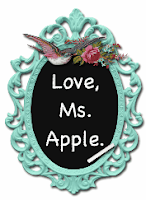LET'S GET WORD WEBBING
Wednesday, July 19, 2017
What interesting about word webbing is its ability to make the activity fun. While pupils can use their prior knowledge to extract meaning and uses of words, at the same time they can learn to be creative by exploring of what they do not know. It is a 360 degree spin from the word=meaning mundane activity.
What is word webbing?
- Identify a word or phrase.
- Write down any word associated with the word/phrase identified.
VERY SIMPLE!
The question is, how can we make it fun? Here are 5 ways to make it engaging for your class. While my ideas focus on young learners, I think adults language learners too will like the fun.
Circle Time.
- Pupils are seated in small groups of 4.
- Every pupil will have a different colored pen.
- Pupils identify a word from the text.
- Pupils write the word at the center on a project paper.
- The design of the word web is based on the group preferences (some templates will be suggested at the end of this post).
- Taking a turn, pupils write a word they think associated with the word identified.
- Round 2, pupils check the words written by its relevant and spelling.
- Repeat step 6 and 7 until the time is up.
Run to the Board!
- Pupils are seated in a small group of 6.
- Every group will have a different colored pen.
- Teacher identifies a word/phrase from the text and writes it on the board.
- In 5 minutes, pupil brainstorms the word associated with the word/phrase identified.
- When the time is up, 1 person from every group will run to the board and write down a word.
- In groups, they will take a turn until the time is up.
- The teacher may reward the group with the most words on the board.
- If the pupils write the same word, the teacher may cross out one and award no marks.
Fan me, please...
- Pupils are seated in small groups of 4.
- Each group is given 4 blank cards.
- On card 1: Pupils write [What is the word?] On card 2: Pupils write [The word is.....] On card 3: Pupils write [This word can be associated with .......] On card 4: Pupils write [That's great! The word....is associated with the word ...... OR I don't think so. The word ....is associated with the word ......]
- Every pupil will take a card. Use the card for cues.
- After one round, they will jot their answer in a notebook/worksheet provided.
- For the second round, the person who had card 1 will receive card 4, the person who had card 2 will receive card 1, the person who had card 3 will receive card 2 and the person who had card 4 will receive card 1.
Word Worm.
- Pupils are seated in small groups of 4.
- Each group is given a different word.
- In 5 minutes, the group will brainstorm the word associated with the word given.
- When the time is up, 1 person (the Word Worm) from each group will go to the other group to learn new word and its word association.
- The Word worm will write the new word learned and write notes/complete template by the teacher.
- After 5 minutes, the word worm will return to its original group and teach the rest of the group members.
- For the second round, another person will become the word worm.
- Repeat step 6 and 7.
Who's with me?
- The teacher prepares a stack of cards.
- Each pupil receives a blank card.
- Teacher writes a word on the board.
- Individually pupils write a word (on the card) associated with the word on the board.
- Teacher calls out a category and pupils need to regroup themselves. For example, the word on board is Playground. Teacher calls activity at the playground! Pupils who write the activity will regroup themselves.
- At the end, the teacher can assess pupils knowledge depth and breadth of the word.
EXTENSION
The activities suggested will take short class time. The teacher needs to plan other activities to support word webbing. Assessment is crucial in identifying the word study and teacher may incorporate sentence building in the assessment.
SUGGESTED WORD WEBBING TEMPLATES
Vocabulary building is pertinent in mastering a language. One must spend a considerable amount of time understanding and studying of vocabulary before automaticity to take effect. Consider the activities suggested and Insya Allah, you will see the difference!






















0 comments